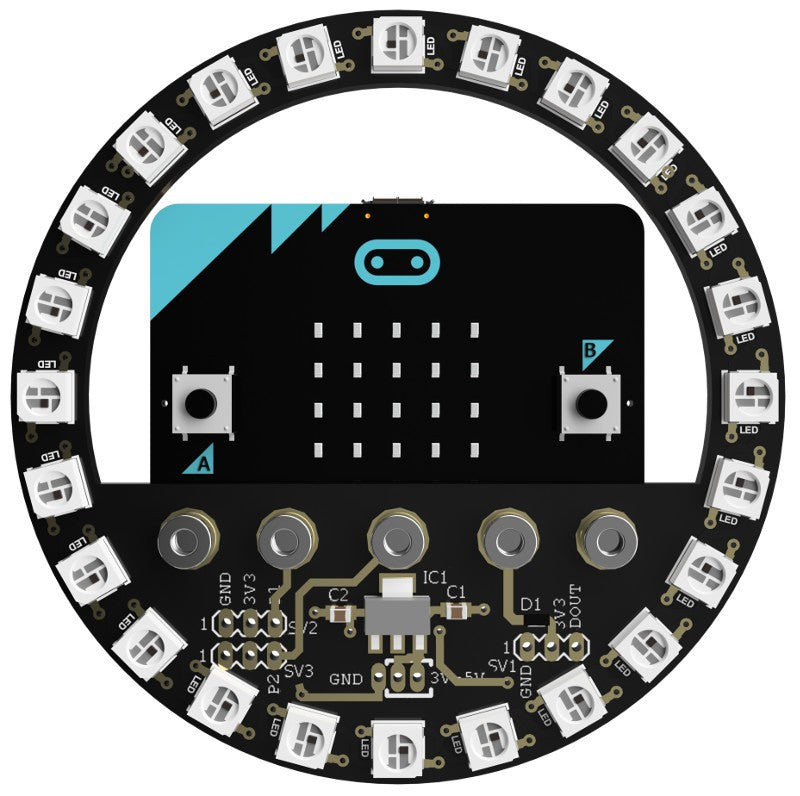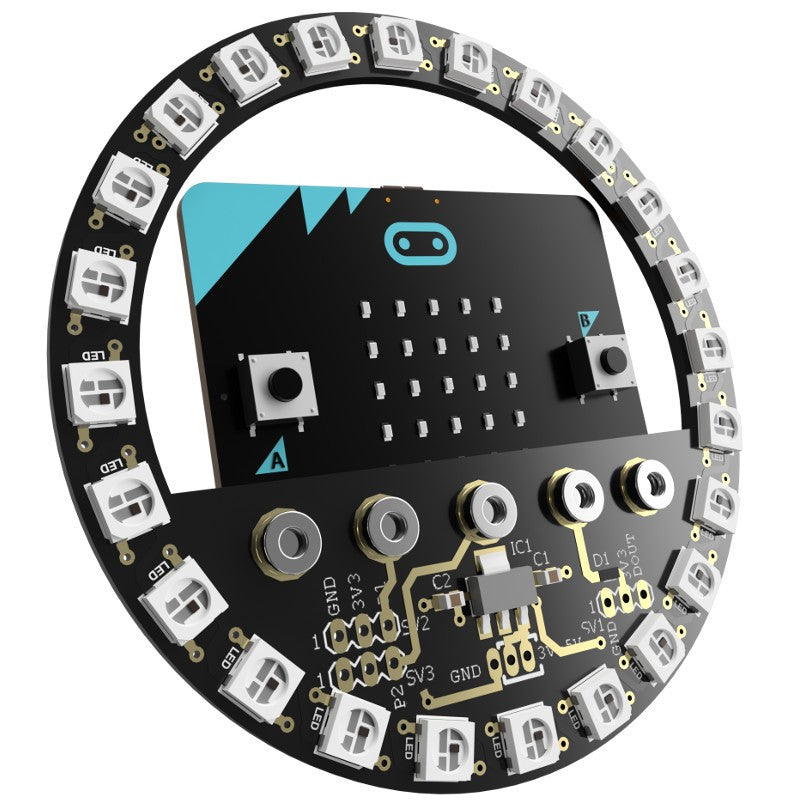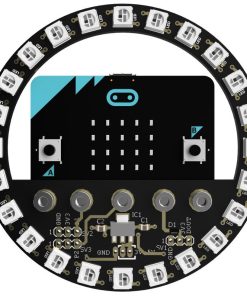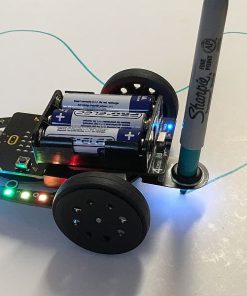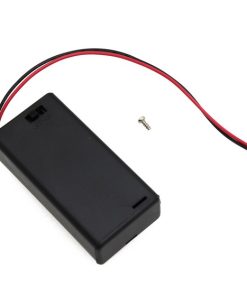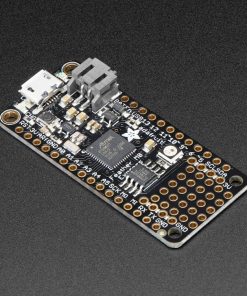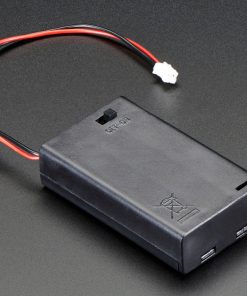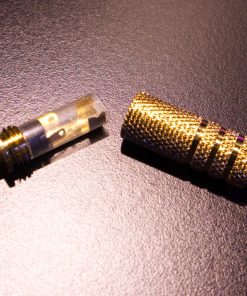Add some colour to your next coding project with our new Halo board for the BBC micro:bit. The Halo has 24 ZIP LEDs, which are individually addressable full colour LEDs. This means that each LED can display a huge spectrum of colours, allowing amazing colourful effects to be achieved.
The Halo bolts directly onto the BBC micro:bit using five bolts which are secure and robust. The board also has extension connector pads (0.1 pitch) allowing more ZIP LEDs to be connected. The P1 and P2 micro:bit pins are also broken out to 0.1″ pads along with power and GND. This allows for additional connections to low power components such as sensors and switches.
The Halo takes a supply voltage of 3.5V-5V and provides a regulated power supply to BBC micro:bit. Power can be connected using the JST input using the 3xAAA battery holder, or LiPo battery, or JST lead. Alternatively you can solder a power supply directly to the solder pads on the PCB.
The LEDs used are based on the WS2812B part which is compatible with Adafruit NeoPixel and other WS2812B driver code. They can also be coded in the PXT Block/Javascript editor with the NeoPixels blocks.
Features:
- Halo has 24 individually addressable ZIP LEDs.
- Compatible with Adafruit NeoPixel and other WS2812B driver code.
- Supply voltage: 3.5V to 5V.
- Halo bolts directly onto the BBC micro:bit.
- The board also has extension connector pads.
Contents:
- 1 x Halo for the BBC micro:bit.
Dimensions:
- Diameter: 80mm.
- Height: 3.2mm
- Height With micro:bit: 10mm.
- PCB Thickness: 1.5mm.
Resources:
- Guide For Using Kitronik ZIP LEDs With The BBC microbit.
-
WS2812B Datasheet.

- Adding extra ZIP LEDs to the Halo
- Programming the ZIP LEDs in Python using the NeoPixel module
- Here’s some example Python code for making a spinning light
Fast Shipping and Professional Packaging
Because of our long-standing partnership with UPS, FedEx, DHL and many other leading global carriers, we can provide various shipping options. Our warehouse staff is highly trained and will pack the items according to our exact and precise specifications. Before shipping, your goods will be thoroughly examined and secured. We deliver to thousands of customers every day from all over the world. This is a sign of our dedication to being the largest online retailer worldwide. There are distribution centers as well as warehouses located in Europe as well as the USA.
Note: Orders with more than one product are assigned a specific processing period dependent on the particular item.
Before shipping, we will examine the items ordered carefully before shipping. The majority of orders are shipped within 48 hours. The time to deliver varies from 3-7 days.
Returns
The stock is constantly changing and cannot be fully controlled by us due to the involvement of many parties including the factory and our warehouse. This means that the actual stock could alter at any time. Be aware that it is possible that your order could be out of stock after you have made the order.
Our policy lasts thirty days. If you haven't received your item within 30 days, we're unable to offer the option of a refund or exchange.
You are able to return an item when it's unopened and is in the same condition as when you first received it. It should also be returned in its original packaging.
